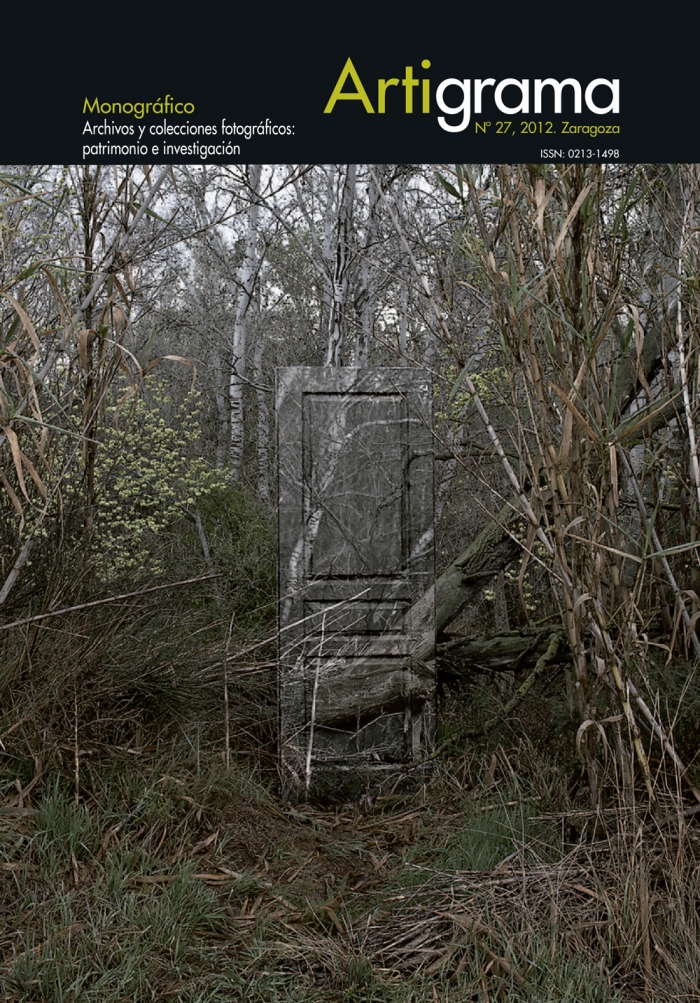Mo Yan y Zhang Yimou, una poética compartida: la adaptación cinematográfica de Sorgo rojo (1987)
DOI:
https://doi.org/10.26754/ojs_artigrama/artigrama.2012277980Palabras clave:
Zhang Yimou, Mo Yan, Sorgo rojo, literatura y cine, adaptación cinematográficaResumen
Resumen
Ni la obra cinematográfica de Zhang Yimou se entiende sin el papel que en ella juega la literatura, ni la literatura china sería lo mismo sin el director puesto que el éxito internacional que han alcanzado sus películas ha dado a conocer y ha puesto en valor los originales literarios en las que estaban basadas. Para su opera prima, Sorgo rojo (1987), Zhang Yimou parte de la novela homónima del recién laureado con el Premio Nobel de Literatura, Mo Yan. En el presente artículo desgranaremos los aspectos más destacables del proceso de adaptación de la obra literaria a la fílmica, analizando las motivaciones que se esconden tras las continuidades y las fracturas que el director presenta respecto a la novela.
Abstract
We couldn’t understand the film work of Zhang Yimou without taking into account the role that literature plays in it, nor Chinese literature would be the same without the international success of his films that have valued the original literary work in which the films are based on.For his directorial debut, Red Sorghum (1987), Zhang Yimou decided to film the homonymous novel from the recently awarded with the Nobel Prize, Mo Yan. Through this article we state the highlights of the process of adaptation from the literary work to the film, analyzing the motivations that lie behind their continuities and fractures.
Key words
Zhang Yimou, Mo Yan, Red Sorghum, literature and film, film adaptation.
Descargas
Referencias
Alcaine, R. y Chen, M., Zhang Yimou, Madrid, Ediciones JC, 1999.
Berry, M., Speaking in Images. Interviews with Contemporary Chinese Filmmakers, Nueva York, Columbia University Press, 2004.
Clark, P., Reinventing China. A Generation and Its Films, Hong Kong, The Chinese University Press of Hong Kong, 2005.
Chen-Andro, Ch., “Le sorgho rouge de Mo Yan”, La Littérature chinoise contemporaine, tradition et modernité, Colloque d’Aix-en-Provence, 8 juin 1988, Aix-en-Provence, Publications de l’Universite de Provence, 1989, pp. 11-13.
Gateward, F., Zhang Yimou Interviews, Jackson, University Press of Mississippi, 2001.
Hax, A., “Estoy tremendamente feliz y asustado”, Revista Ñ, (11-X-2012). http://www.revistaenie.clarin.com/literatura/Mo-Yan-tremendamente-feliz asustado_0_790121179.html
Kuoshu, H., Celluloid China. Cinematic Encounters with Culture and Society, Carbondale, Southern Illinois University Press, 2002.
Labaila Sancho, A., “El director de cine chino Zhang Yimou y su “Trilogía de la Opresión” (Sorgo Rojo, 1989; Ju Dou. Semilla de Crisantemo, 1990; La linterna roja, 1991). Una poética, un compromiso, tres tiempos y un color”, Zaragoza, Facultad de Filosofía y Letras de la Universidad de Zaragoza, Departamento de Historia del Arte, 2010. Trabajo de Fin de Máster.
Labaila Sancho, A., “La obra fílmica del director Zhang Yimou como medio de transmisión y aproximación a la cultura china y contemporánea. Recepción y percepción de su obra en Occidente”, en Cabañas, P. y Trujillo, A. (coord.), La creación artística como puente entre Oriente y Occidente. Sobre la investigación del Arte Asiático en países de habla hispana,Grupo de Investigación Complutense Arte de Asia/ Grupo de Investigación ASIA, 2012 (CD-ROM).
Li, E., “Paving Chinese Film’s Road to the World”, en Han, X. y Xiao, H., Living for Art, Not for Food, Changsha, Hunan wenyi chubanshe, 1996, pp. 385-412.
Marín Lacarta, M., “Mediación, recepción y marginalidad: las traducciones de literatura china moderna y contemporánea en España”, París, Institut National des Langues et Civilisations Orientales (IN-ALCO)/ Barcelona, Universidad Autónoma de Barcelona, Ecole Doctorale Langues, littératures et sociétés du monde Departamento de Traducción e interpretación, 2012 (Tesis Doctoral).
Mayfair, M., “Of Gender, State, Censorship, and Overseas Capital: An Interview with Chinese Director Zhang Yimou”, Public Culture, 5:2, 1993.
Mo, Y., Sorgo Rojo, Barcelona, El Aleph Editores, 2009.
Tan, Y., “From the Fifth to the Sixth Generation: An Interview with Zhang Yimou”, Film Quaterly, 53, 2, University of California Press, 1999-2000, pp. 2-13.
Wang, D., “The Literary World of Mo Yan”, World Literature Today,74, 3, University of Oklahoma, 2000, pp. 487-494.
Xionping, J., “Dicussing Red Sorghum”, en From Turbulent Meeting: Dialogues with Contemporary Chinese Film,Taipei, Yunliu Publishing, 1999.
Xionping, J., “Dicussing Red Sorghum”, en Gateward, F., Zhang Yimou Interviews, Jackson, University Press of Mississippi, 2001, p. 14.
Zhang, Y., “Wei zhongguo dianying zouxiang shijie pulu”, en Han, X. y Xiao, H., Zhang Yimou: Wei yi mou, bu wei daoliang mou, Changsha, Hunan wenyi chubanshe, 1996.
Zhang, Y., Encyclopedia of Chinese Film,Londres-Nueva York, Routledge, 1998.
Zhang, Y., Sorgo rojo, Barcelona, Filmax Home Video, 2009 (DVD).
Descargas
Publicado
Número
Sección
Licencia

Esta obra está bajo una licencia internacional Creative Commons Atribución-NoComercial 4.0.


